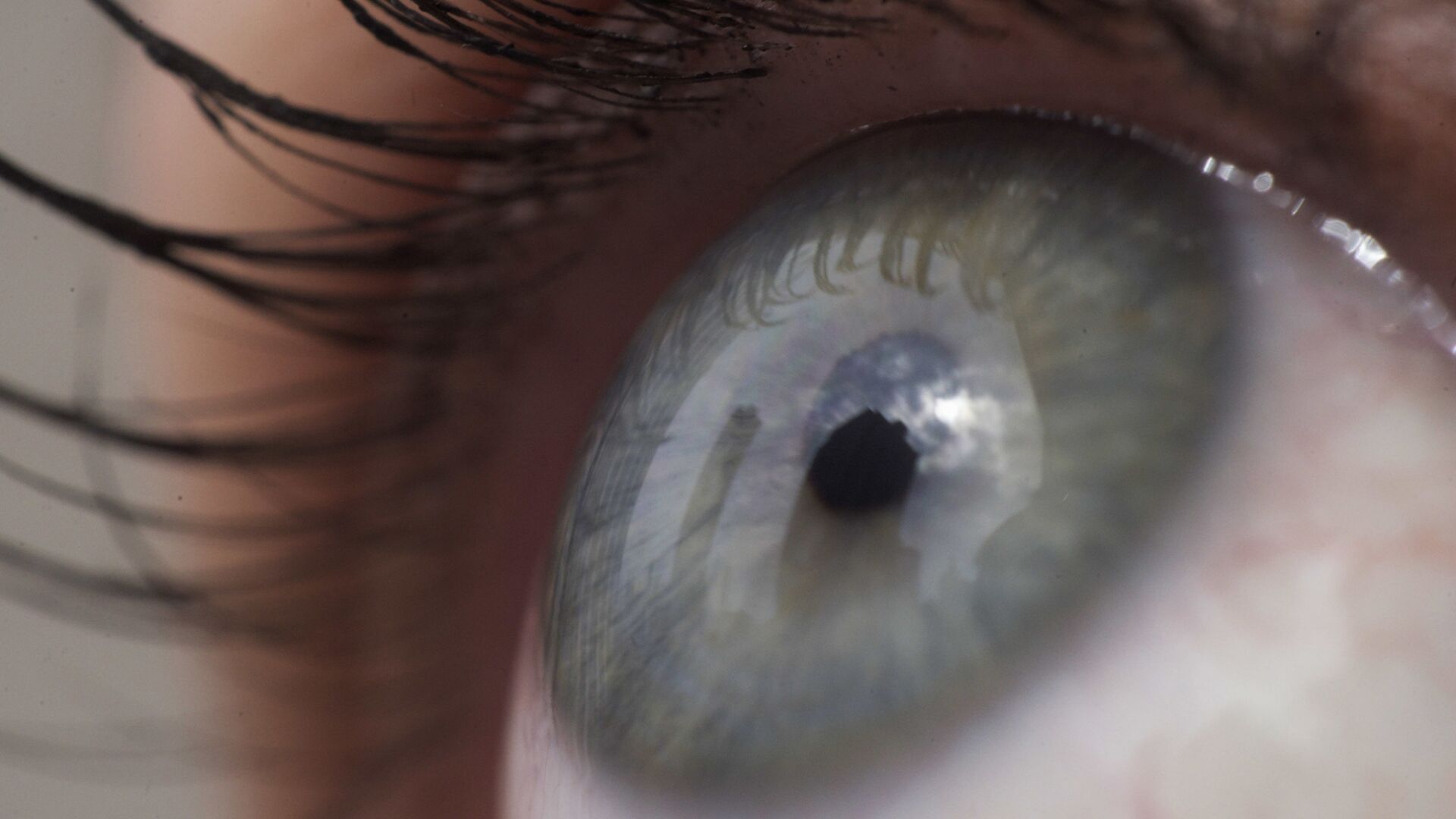https://sputnikglobe.com/20220201/swedish-film-festival-puts-public-under-hypnosis-in-back-to-the-roots-experience-1092655141.html
Swedish Film Festival Puts Public Under Hypnosis in 'Back to the Roots' Experience
Swedish Film Festival Puts Public Under Hypnosis in 'Back to the Roots' Experience
Sputnik International
Cinema and hypnosis have many common traits. In early film history, the then-novel cinema experience was often compared to hypnosis, a grey zone between dream... 01.02.2022, Sputnik International
2022-02-01T08:54+0000
2022-02-01T08:54+0000
2022-02-01T08:54+0000
newsfeed
society
sweden
scandinavia
hypnosis
cinema
https://cdn1.img.sputnikglobe.com/img/107847/74/1078477496_0:261:3000:1949_1920x0_80_0_0_7bd969e2a7354412c81fbf97a1285290.jpg
To enhance and add another layer to the cinematic experience, the Gothenburg Film Festival, one of Scandinavia's largest, has added 20 minutes of mass hypnosis ahead of the movies.The first of the three experimental sessions took place on Sunday evening in front of just a few dozen people – due to COVID-19 restrictions still valid in the Nordic country.As a preface to "Land of Dreams" by Iranian-US director Shirin Neshat – quite fittingly, about catching dreams – a session with hypnotist Fredrik Praesto was held, during which the public was asked to close their eyes and hold hands as if they were magnets. Followed by a countdown, the film began. A similar countdown was in place as the credits started rolling, to break the spell of hypnosis.Jonas Holmberg, the artistic director of the Gothenburg Film Festival, described this effort of "hypnotic cinema" as a way of "challenging the common ideas about how to watch a film".Cinema and hypnosis have many common points of reference. In early film history, the novel and immersive cinema experience was often likened to hypnosis, a kind of conscious mental submission in a borderland between dream, sleep, and wakefulness."Watching a movie at the cinema can be extremely hypnotic. At home with the tablet, it is much harder to maintain the full focus you need to really sink into the movie", Holmberg said describing the experiment both as a "tribute to and extension of the cinema experience".Yet, despite heightened expectations, film critic Fredrik Sahlin described the effort as "a bit of an anticlimax".The Gothenburg Film Festival is known for offering unusual experiences to its audiences. For instance, last year, to comply with stricter COVID-19 rules, it offered an entire week of screenings to a single person. To add yet another selling point, the screenings were held in a remote lighthouse on a deserted island.
sweden
scandinavia
Sputnik International
feedback@sputniknews.com
+74956456601
MIA „Rossiya Segodnya“
2022
News
en_EN
Sputnik International
feedback@sputniknews.com
+74956456601
MIA „Rossiya Segodnya“
Sputnik International
feedback@sputniknews.com
+74956456601
MIA „Rossiya Segodnya“
newsfeed, society, sweden, scandinavia, hypnosis, cinema
newsfeed, society, sweden, scandinavia, hypnosis, cinema
Swedish Film Festival Puts Public Under Hypnosis in 'Back to the Roots' Experience
Cinema and hypnosis have many common traits. In early film history, the then-novel cinema experience was often compared to hypnosis, a grey zone between dream, sleep, and wakefulness.
To enhance and add another layer to the cinematic experience, the Gothenburg Film Festival, one of Scandinavia's largest, has added 20 minutes of mass hypnosis ahead of the movies.
The first of the three experimental sessions took place on Sunday evening in front of just a few dozen people – due to COVID-19 restrictions still valid in the Nordic country.
As a preface to "Land of Dreams" by Iranian-US director Shirin Neshat – quite fittingly, about catching dreams – a session with hypnotist Fredrik Praesto was held, during which the public was asked to close their eyes and hold hands as if they were magnets. Followed by a countdown, the film began. A similar countdown was in place as the credits started rolling, to break the spell of hypnosis.
Jonas Holmberg, the artistic director of the Gothenburg Film Festival, described this effort of "hypnotic cinema" as a way of "challenging the common ideas about how to watch a film".
"The rules and restrictions of recent years have made visible how order in society is maintained and what really governs people's thoughts and behaviours. Maybe we don't make decisions as independently as we think? Through The Hypnotic Cinema, we want to raise questions about submission, crossing the border, and control", Holmberg told the news outlet Filmtopp ahead of the performance.
Cinema and hypnosis have many common points of reference. In early film history, the novel and immersive cinema experience was often likened to hypnosis, a kind of conscious mental submission in a borderland between dream, sleep, and wakefulness.
"Watching a movie at the cinema can be extremely hypnotic. At home with the tablet, it is much harder to maintain the full focus you need to really sink into the movie", Holmberg said describing the experiment both as a "tribute to and extension of the cinema experience".
Yet, despite heightened expectations, film critic Fredrik Sahlin described the effort as "a bit of an anticlimax".
"It was more of a mindfulness exercise than a spectacular brain-wrinkling hijacking of the free will, as we usually see on film", Sahlin wrote in his subsequent column for national broadcaster SVT.
The Gothenburg Film Festival is known for offering unusual experiences to its audiences. For instance, last year, to comply with stricter COVID-19 rules, it offered an entire week of screenings to a single person. To add yet another selling point, the screenings were held in a remote lighthouse on a deserted island.

